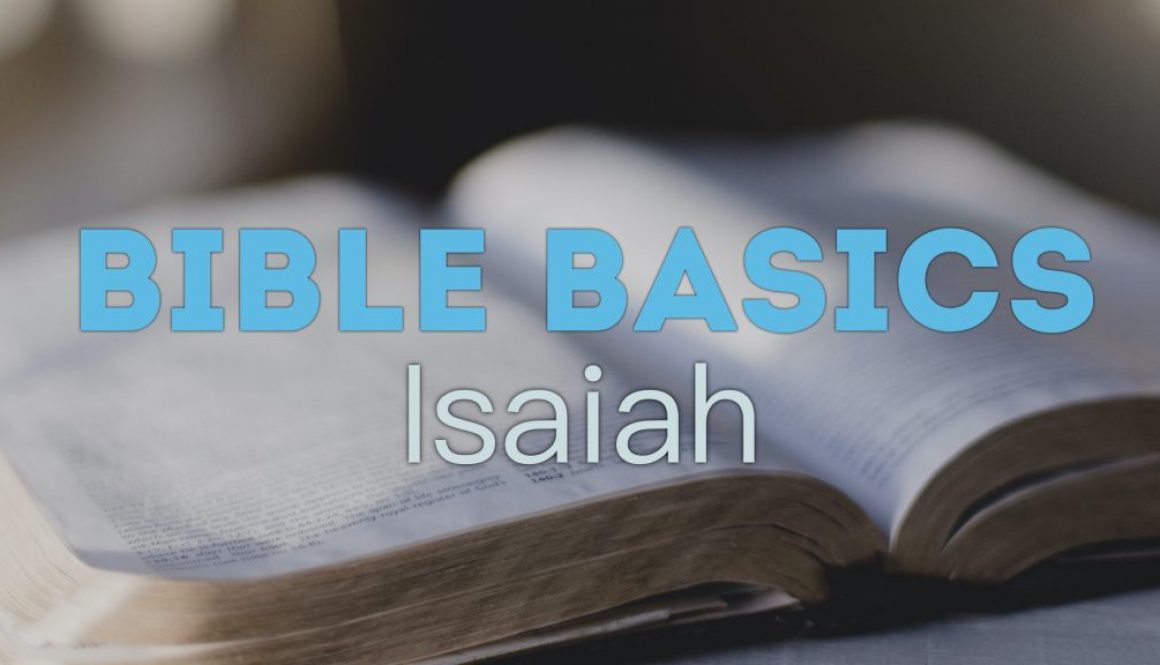Isaiah
Author
Isaiah, who, because of the large numbers of prophecy concerning the coming of Christ, has earned the nickname, “The Messianic Prophet.”
Date
The book of Isaiah was written over many decades, covering the period from Isaiah’s calling as a prophet “in the year that King Uzziah died” (6:1), which would have been around 740 B.C; through the death of Sennacherib (37:38), which would have been around 681 B.C. However, many scholars believe Isaiah had finished his public prophetic ministry by 700 B.C.
Audience and Purpose
Isaiah was writing primarily to the people of Judah, after the nation was divided. His writings were prior to the attempted Assyrian captivity of Judah, and during the Assyrian captivity of Israel. Although delivered from Assyria under the leadership of King Hezekiah, Isaiah does prophesy that Judah would be taken into captivity by Babylon as punishment for their sin as well as their restoration under a future man named Cyrus (see Chapters 41, 44-45).
In the book, Isaiah’s prophecies are recorded chronologically. Each of his prophecies tend to follow the same general pattern: first he brings an accusation agains the people for their sin, then he prophesies the judgement God will bring as punishment After this, he calls the people to repentance and to return to the Lord, then he paints a picture of God’s restoration and blessing to follow if they do.
Major Themes
- God’s Judgement for Sin.
- God’s Promise of Salvation and Restoration.
- The Promised Messiah. Isaiah 53 has been called “The Gospel of Isaiah,” because it gives the clearest picture of Christ’s sacrificial death, making atonement for sin and sickness, than any other Old Testament writer.
- The Day of the Lord. This day of God’s final judgment of the wicked and vindication of the righteous is a major topic for many of the Old Testament prophets.
Key Scriptures
- Isaiah 1:18-20 — “Come now, let us reason together, says the Lord: though your sins are like scarlet, they shall be as white as snow; though they are red like crimson, they shall become like wool. If you are willing and obedient, you shall eat the good of the land; but if you refuse and rebel, you shall be eaten by the sword; for the mouth of the Lord has spoken.”
- Isaiah 53:4-6 — (Prophesying about Jesus) “Surely he has borne our griefs and carried our sorrows; yet we esteemed him stricken, smitten by God, and afflicted. But he was pierced for our transgressions; he was crushed for our iniquities; upon him was the chastisement that brought us peace, and with his wounds we are healed. All we like sheep have gone astray; we have turned—every one—to his own way; and the Lord has laid on him the iniquity of us all.”
Outline
- Isaiah 1:1-12:6 — Prophesy of God’s Judgment on His People
- Isaiah 13:1-27:13 — Prophesy of God’s Judgment on the Nations
- Isaiah 40:1-55:13 — Promise of Restoration and Salvation for God’s people
- Isaiah 56:1-66:24 — Preparation for a Glorious Future
Gospel Summary
Isaiah is quoted in the New Testament more than any other Old Testament prophet. Despite being a timely word of warning for the people of Judah concerning their continual sin and imminent punishment from the Lord, he still manages to prophesy a clearer picture of the life of the coming Messiah than any other book of the Old Testament. His prophecy includes, among other things:
- the virgin birth and that the Messiah would be called “Immanuel,” or “God With Us” (7:14);
- that Messiah would work from Galilee (9:1-2);
- that Messiah would be God and that His Kingdom would be without end (9:6-7);
- that God’s Spirit would rest on the Messiah, who would be called “the branch” (11:1-2);
- the gentleness of the Messiah as a servant (42:1-4),
- the suffering and death of the Messiah which would atone for the sin and sicknesses of mankind (52:13-53:12), and
- the purpose of the Messianic anointing (61:1-4), which Jesus quotes concerning Himself in Luke 4:18-19.
© Anthony Scott Ingram 2020. All Rights Reserved.
Photo by Carolyn V on Unsplash
Unless otherwise indicated, all Scripture quotations are from The Holy Bible, English Standard Version®, copyright © 2001 by Crossway Bibles, a publishing ministry of Good News Publishers. Used by permission. All rights reserved.”
Please note that I do get a small kickback from Amazon for any purchases made using the links on this post. Should you choose to purchase from them, I just want to say thank you for further supporting my work in ministry!
